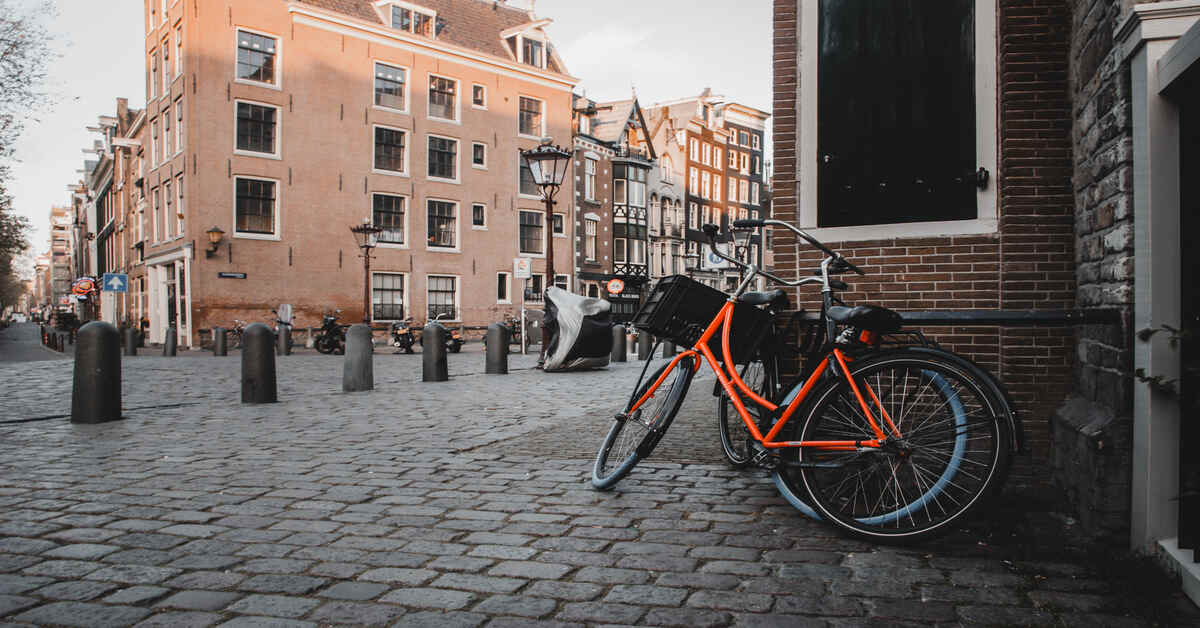
Bicycles are equated with the Netherlands. Cycling is not just a means of transportation but a lifestyle, whether one is riding through historic city streets, or through the scenic countryside. The cycling culture Netherlands is a great way to see Dutch society through the prism of sustainability, efficiency, and lifestyle convergence. As a tourist who wants to travel like the locals or a traveler intrigued by how cities are organized, it is a good idea to know more about Dutch cycling culture, to understand how people live their everyday life, what infrastructure and different social conventions contributed to the fact that the Netherlands have become a model of a city that is friendly to bikes.
Cycling culture in the Netherlands is not something that was developed in one day. The country was experiencing growing car traffic and accidents after World War II. City dwellers and city planners started to promote safe cycling roads, traffic regulations and community education. All these attempts over decades turned the Netherlands into a cycling paradise. Currently, there is a population of approximately 17 million people that are being served with more than 27 million bicycles, which proves that bikes are not just a convenience, but a fact of Dutch identity.
Cycling helps reduce carbon emission, traffic congestion and promotes environmentally friendly commuting. It is an essence of the environmental campaigns in the Netherlands and thus it fits perfectly into the process of sustainable travels.
Cycling can be very quick in such cities as Amsterdam, Utrecht and Groningen. Bikes are able to make use of the small streets, avoid traffic congestions as well as link up to mass transit centres.
Cycling is also a routine activity that helps to be physically fit, mentally relaxed and liberated. A lot of Dutch people find biking as something they need to do on a daily basis and biking is not a recreational activity.
The Netherlands’ cycling culture thrives because of its comprehensive infrastructure.
Almost every street includes marked bike lanes, often separated from cars. This ensures safety and smooth traffic flow for both cyclists and motorists.
Cities provide ample bike parking near stations, shops, and public areas. Multi-story bike garages in Amsterdam Central Station can house thousands of bikes, reflecting the nation’s commitment to cycling convenience.
Dutch cyclists benefit from clear traffic signage and rules. Priority is given to bikes in many areas, and traffic lights are synchronized to optimize cycling flow.
The Netherlands also has a system of so-called fietsknooppunten-numbered cycling junctions linking picturesque, safe and efficient routes across the cities and countryside.
Go around major cities such as Amsterdam, Utrecht and Haarlem using a bike. Ride through canal boat tours, historic sites, and trade centers to get to know the city like locals. Newcomers can also be taken on guided cycling tours in order to explore the city streets safely.
The Dutch countryside offers flat, picturesque routes perfect for longer rides. Cycling through tulip fields, windmills, and polders allows travelers to immerse themselves in Holland’s natural beauty.
For serious cycling enthusiasts, multi-day tours across provinces like Friesland, Zeeland, and Limburg provide a mix of nature, culture, and culinary experiences. Many routes connect towns, historic sites, and accommodations tailored for cyclists.
Understanding local norms is crucial for a smooth experience in the cycling culture of the Netherlands.
Cycling is not only convenient, this is also one of the top attractions among tourists. A large number of tourists hire bikes in order to tour both the city and countryside. It is established by local enterprises that provide bike rentals, guided tours, and maps of scenic routes.
Cities have rental services offering daily or weekly bikes, including electric bikes for easier long-distance riding. Prices are reasonable, often starting around €10 per day.
Guided tours are ideal for first-timers, providing both safety and local insights. Tours often focus on history, art, or culinary stops, blending cycling with cultural experiences.
Events like the Dutch Cycling Week or local city rides celebrate the nation’s cycling culture, encouraging both locals and tourists to participate.
The culture of cycling in the Netherlands has helped in providing cleaner air, less congestion, and healthy citizens. It also creates a social aspect as there is a common area of cycling by people irrespective of their age and other factors. The Netherlands has been able to lead the world on urban sustainability by ensuring alternative transportation is promoted.
Cycling culture Netherlands is more than transportation, it is a manifestation of Dutch values, namely sustainability, practicality, and community. Through the city of Amsterdam with its congested streets and the placid countryside with its quiet country lanes, cycling is an up close, close-up experience of the country.
To the tourists, the bicycle culture is not only convenient, but it is also an opportunity to view the Netherlands as a local and experience the environmental leadership of the country as well as the opportunity to move with the speed of your own. Pedal power is a linkage between history, innovation and normal life thus cycling is a memorable aspect of any Dutch adventure.
Leave A Comment